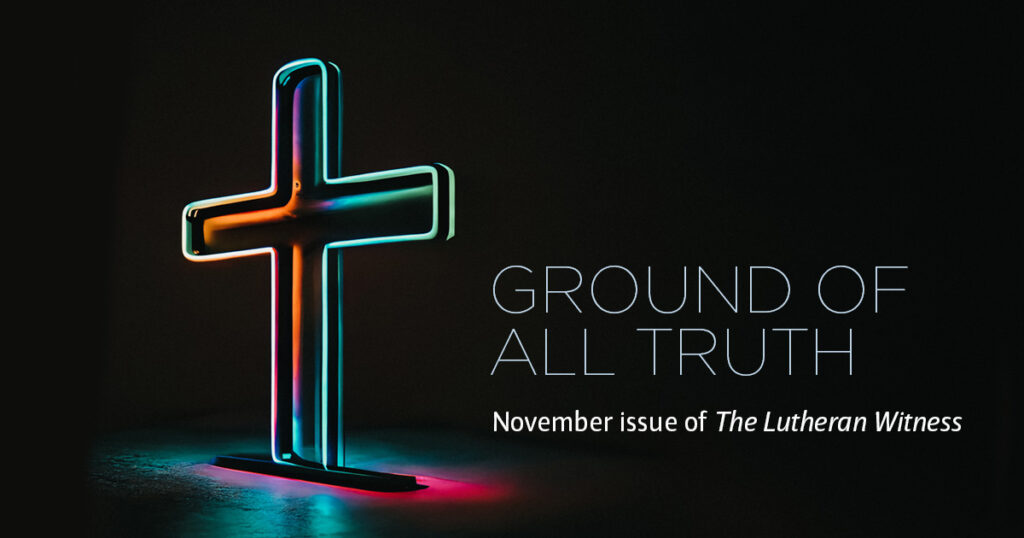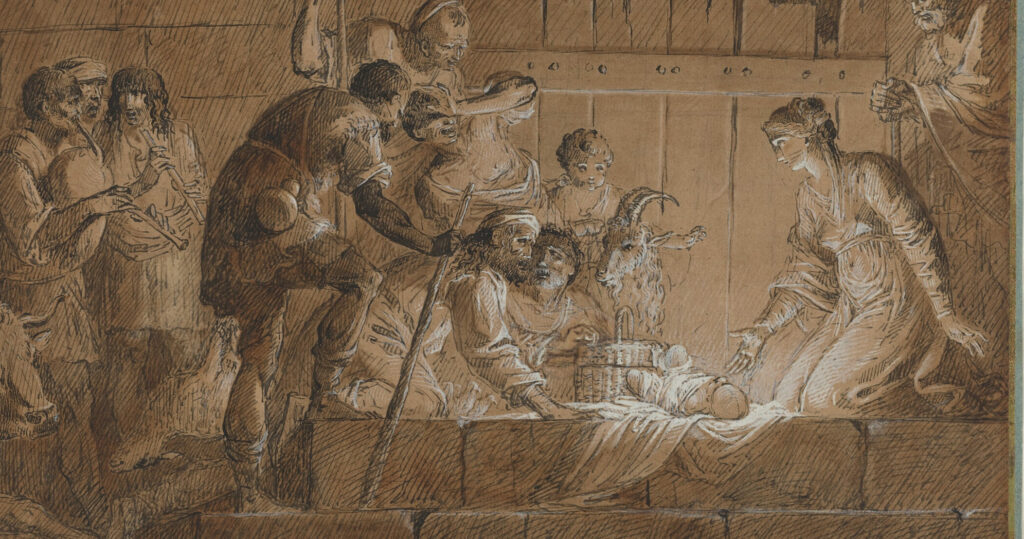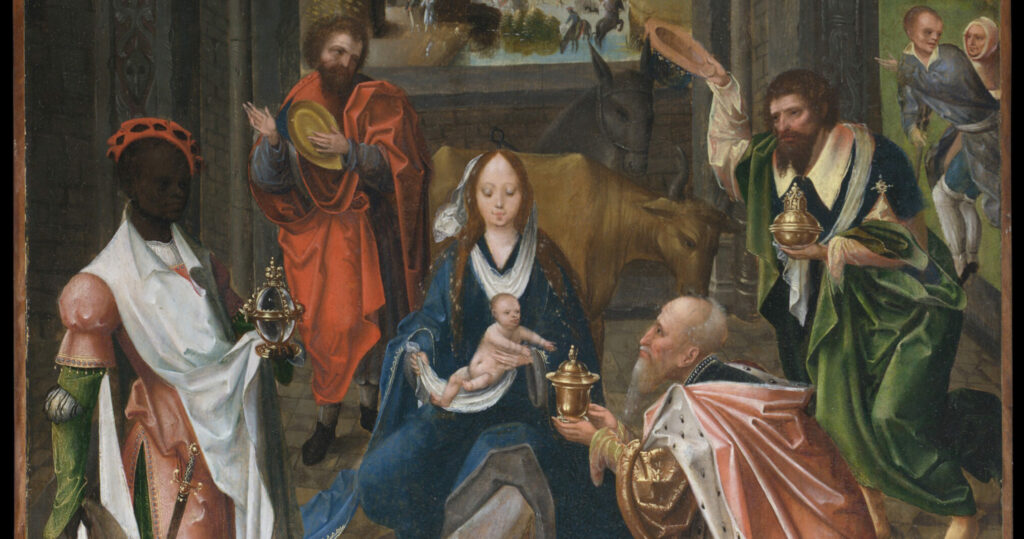In 1936, during the rising heat of the Hitler regime, Hermann Sasse wrote about truth. German culture was awash in a “sea of lies,” and in the church lies also held sway. This timeless piece has much for us to ponder in our day and about ourselves.
–Pastor Harrison
The following excerpt is from Hermann Sasse’s 1936 essay “Union and Confession,” translated by Matthew C. Harrison (St. Louis: The Lutheran Church—Missouri Synod Office of the President, 1997).
The lie is the death of man, his temporal and his eternal death. The lie kills nations. Through their lies, the most powerful empires of the world were laid waste. History knows of no more unsettling spectacle than the judgment which comes to pass when the men of an advanced culture have rejected the truth, and are now swallowed up in a sea of lies. As was the case with fading pagan antiquity, where this happened, religion and law, poetry and philosophy, life in marriage and family, in the state and society, in short, one sphere of life after another, fell sacrifice to the power and curse of the lie. Where man can no longer bear the truth, he cannot live without the lie. Where man, even when dying, lies to himself and others, the terrible dissolution of his culture is held up as a glorious ascent, and decline is viewed as an advance, the like of which has never been experienced.
If, according to the irrefutable testimony of history, this is the judgment of God on the lie, should God then not also punish the lie in His church? Truly He who is the Judge of all the world will do this! For the power of the lie extends even into the church. Since the days of the apostles there has been lying in the church as in the rest of the world. For people in the church too are and remain poor sinners until their death.
Lies have been told in the church because of cowardice and weakness, vanity and avarice. But beyond all these there is in the church one particularly sweet piece of fruit on the broad canopy of the tree of lies. This is the pious lie. It is the hypocrisy by which a man lies to others, and the intellectual self-deception by which he lies to himself that he believes. “In our time too the proclamation of the Word in assumed orthodoxy is unfortunately not an infrequent occurrence of this lie.” …
The most fearful thing about the pious lie is that it will lie not only to men, but also to God in prayer, in confession, in the Holy Supper, in the sermon, and in theology. The pious lie always has the propensity to become the edifying lie. It was once expelled from the church when it existed in the form of the legends of the saints and the fraud of relics. Then in full view of pious eyes, it returned in a new form, such as in the Luther legends, or in pietistic times in the form of almanacs and tracts containing the accounts of miraculous responses to prayer and equally miraculous conversions, which either never happened, or in which the kernel of historical truth was no longer discernible. This “edifying” lie even forces its way into the sphere of the church, which teaches revealed truths of revelation. After sufficient preparation it can obtain the status of “doctrinal maturity.” Thus it becomes the dogmatic lie.
We ask our Roman Catholic fellow Christians to believe that it is very difficult for us to use the word “lie” here, and we do not do so to offend them. We know that they affirm a dogma such as the Immaculate Conception of Mary out of deep conviction of faith, and they will accept the yet-awaited extension of Marian dogma from the hand of the ecclesiastical teaching office with the same sincerity. But this changes nothing of the fact that in these dogmas false doctrines are established, and that the Roman Church thus finds itself in a guilt-laden error.
This is the biblical, theological expression of the lie: though guilty of falsehood, it belies the truth and proclaims that which is not truth, hiding this guilt before God behind a human bona fides. … Theology knows that the most dangerous lies are those which are proclaimed with what the world calls a “good conscience.”
When we speak of the dogmatic lie, we do not, however, have in mind only the celebrated dogmas pronounced by the Catholic Church, through which theories are elevated to the level of ecclesiastical dogma, and have no basis in Holy Scripture, and are not true. We include here also precisely the dogmas with which modern Protestantism has been at pains to correct, to complete, or to replace the doctrine of the evangelical church, such as the false doctrine of Pietism concerning the church, or of rationalism concerning the person of Jesus Christ.
What a fearful thought it is indeed that things are taught in the church which are not true, under the guise of the eternal truth entrusted to her. No atheism, no Bolshevism can do as much damage and destruction as the pious lie, the lie in the church. In this lie the power of one is made evident whom Christ Himself calls a liar and the father of lies (John 8:44). And indeed, this is no longer surprising. How can he who in his very essence is a liar passively look upon the fact that in this world of untruthfulness and error, upon the vacillating core of a world of relativity, there could be the “household of God, which is the church of the living God, the pillar and bulwark of the truth” (1 Tim. 3:15). But since he cannot storm this bulwark in open battle, which God Himself has founded as the columna et firmamentum veritatis, he slinks in under the mask of piety and occupies a position from which to make his conquest. And he attempts to topple the pillar of truth through the power of the pious lie.
But does anyone think that Christ who is the Truth personified would allow the lie to come into His church with impunity? No, the judgment which He who is Holy and True will render upon all the lies of the world begins, as with every judgment, with the house of God.
Among the lies which destroy the church there is one we have not yet mentioned. Alongside the pious and dogmatic lies, there stands an especially dangerous form of lie which can be called the institutional lie. By this we mean a lie which works itself out in the institutions of the church, in her government and her organization. It is so dangerous because it legalizes the other lies in the church and makes them impossible to remove. Such a lie exists, for instance, where the governance of the church grants to those who confess and those who deny the Trinity and the two natures in Christ the same rights in the church; where the preaching of the Gospel according to the understanding of the Reformation enjoys the same right as the proclamation of a dogma-less Enlightenment religion, so long as the latter appeals only to the Bible. …
[This] makes it completely impossible to differentiate between truth and error, between true and false doctrine. A church so composed can no longer see that the Gospel is plainly and purely preached and heresy opposed. It must protect open heretics when the “orthodox” side denies that they possess an equal legitimacy in the church. The congregations of such a church, the youth who are educated in it, the people to whom it attempts to preach the truth of the Gospel, must come to the conviction that it simply does not matter much what one believes or does not believe. Since what is to be believed or not believed in the sermon is left up to the individual, his inclinations and aversions, his worldview and soon also his faithlessness will become the norm for proclamation in the church. In place of the objective message of that which God has done in Christ, subjective religious feelings and convictions soon form the essential content of the sermon. Thus the church sinks to the level of an institution for the satisfaction of the manifold religious needs of men and ceases to be the church of Christ, the pillar and foundation of the truth.






